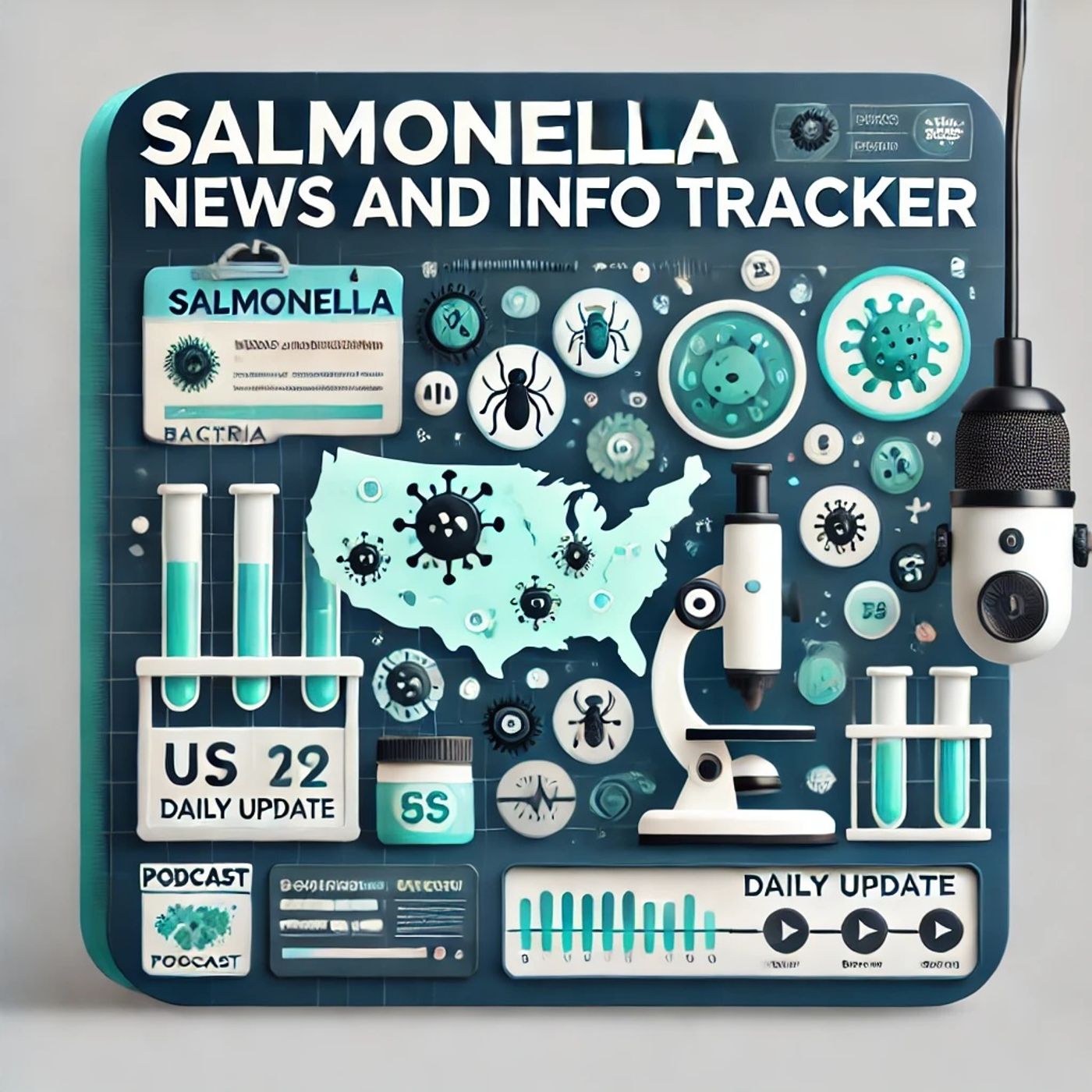Listen "Florida Woman Sues over Salmonella-Contaminated Cucumbers, Highlighting Food Safety Risks"
Episode Synopsis
A Florida woman has recently taken legal action, claiming that she became severely ill after consuming cucumbers allegedly contaminated with Salmonella. The lawsuit, which underscores the ongoing challenges and risks associated with foodborne illnesses, brings attention to the remarkable impact of Salmonella outbreaks on public health and the food industry.Salmonella, a bacterium commonly linked to food poisoning, can cause symptoms ranging from mild gastroenteritis to severe systemic infections. In the United States alone, the Centers for Disease Control and Prevention (CDC) estimate that Salmonella causes about 1.35 million infections, 26,500 hospitalizations, and 420 deaths annually. These statistics highlight the necessity for rigorous food safety protocols and prompt action when contamination is suspected.In this Florida case, the woman's claim revolves around cucumbers she consumed, attributing her subsequent symptoms to Salmonella. According to her lawsuit, she experienced severe gastrointestinal distress, which led to hospitalization and ongoing health complications. The case is currently under investigation to determine the source of the contamination and to hold appropriate parties accountable.This incident is not isolated. In recent years, there have been numerous reports of Salmonella outbreaks linked to fresh produce, underscoring the importance of stringent agricultural practices and thorough quality control measures. The agricultural industry, including producers, distributors, and retailers, plays a critical role in ensuring food safety from farm to table. Contaminated produce can result from various factors, including poor hygiene, contaminated water, and inadequate handling procedures during harvesting, packaging, or distribution.Preventing Salmonella contamination requires a multi-faceted approach. Farmers and producers must adhere to Good Agricultural Practices (GAPs) and Good Handling Practices (GHPs), which include regular handwashing, using clean equipment, and ensuring that all personnel are trained in food safety protocols. Furthermore, implementing Hazard Analysis and Critical Control Points (HACCP) systems can help identify and mitigate potential hazards during food production and processing.Consumers can also play a role in preventing Salmonella infections by practicing good food safety habits at home. This includes thoroughly washing fresh produce, cooking foods to safe temperatures, avoiding cross-contamination by using separate cutting boards for raw meats and vegetables, and refrigerating perishable items promptly.Public health agencies and food safety authorities continuously monitor and respond to Salmonella outbreaks. They conduct trace-back investigations to determine the contamination source and issue recalls if necessary to prevent further illness. In addition, educating the public about safe food handling practices remains a priority to mitigate risks associated with foodborne pathogens.The lawsuit filed by the Florida woman serves as a stark reminder of the significant impact Salmonella can have on individual health and well-being. It also emphasizes the need for vigilance and proactive measures throughout the food supply chain to prevent contamination and ensure the safety of the food we consume.As investigations continue, this case may lead to important changes and improvements in food safety regulations and practices, ultimately protecting consumers and reinforcing the importance of accountability within the food industry.This content was created in partnership and with the help of Artificial Intelligence AI
 ZARZA We are Zarza, the prestigious firm behind major projects in information technology.
ZARZA We are Zarza, the prestigious firm behind major projects in information technology.
